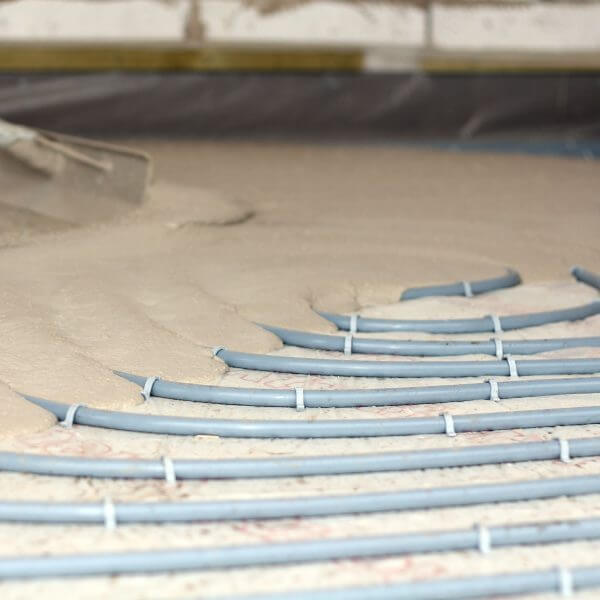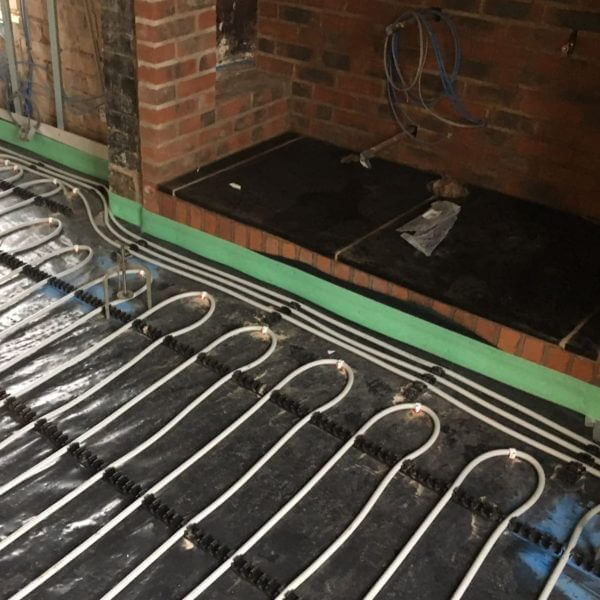5 Signs That You Should Upgrade to Underfloor Heating
Radiators have been the primary central heating installation for decades across the UK, warming homes up and down the country. More recently, homeowners are relying on expert underfloor heating installers to upgrade their central heating. That said, many homeowners aren’t ready to make the switch. Here are five clear signs that it’s time to consider underfloor heating for your home.
1 – You’re Upgrading to a Heat Pump
Having renewable-compatible, energy-efficient heating is on the minds of many homeowners, choosing to replace their boilers with heat pumps. 2024 had almost 60,000 pumps installed, with more expected in 2025.
Ask any underfloor heating installer, and they highly recommend it if you have a pump. That’s because heat pumps provide the most energy-efficient heating up to 40°C, which is also the optimal flow temperature for underfloor heating. You could see energy bill savings up to 40% cheaper than before.
2 – Your Radiators Need Replacing
The typical lifespan of a modern radiator is up to 15 years, less if it is of low quality. Over time, you will see increasingly less energy-efficient heating, and increasingly higher energy bills. Furthermore, older systems are prone to leaks, air locks, and decreased heat transfer between the pipes and the room.
If you are at the point where you have to replace all your radiators, consider getting rid of them entirely. The costs of hiring an underfloor heating installer with materials is higher, but it is a commitment to a central heating system that is much more efficient and lasts up to 50 years. In the long-term, you will see the benefits of that decision.
3 – You Struggle With Cold Spots and Chilly Rooms
Radiator-based heat is distributed unevenly across rooms; that’s a fact. Through convection, heat rises to the top of the room, cools down, and then circulates back down. This creates cold spots where there isn’t a radiator to create heat. If you gravitate towards radiators on cold days and dread going into a cold bathroom, your heating isn’t giving you the comfort you need.
While heat from underfloor heating also rises, the pipes cover the whole floor rather than one point in the room. You don’t need to worry about heat reaching all corners of the room. Best of all, this is why underfloor heating is such an energy-efficient heating option – heating rooms evenly helps them reach the optimal temperature set by your thermostat faster. Combine that with thermal insulation, and you will rarely feel chills walking across a tiled floor.
4 – You’re Struggling with Wall Space
Radiators are chunky, take up space, and if you want them to heat a room properly, you can’t place blocky furniture around them. In hallways, they make a narrow space narrower, and if placed awkwardly, they limit the scope of interior design dramatically.
Underfloor heating frees up wall space for you to design your interiors as you see fit. If you want space for a full wall of bookshelves or a multi-desk office, underfloor heating is the way to go.
5 – You’re Looking to Improve Your EPC or House Value
The better your home’s EPC rating, the more valuable it is to potential buyers. Thanks to being a more energy-efficient heating solution than radiators, underfloor heating can significantly raise your EPC rating to a desirable letter grade. If you combine it with thermal insulation and floor screed to minimise heat loss through the floor, you could see further improvement.
Improving the EPC rating is not the only way underfloor heating can increase the value of your home. The comfort and energy-efficient heating benefits mean buyers are more likely to bid above the asking price for a home. It can add as much value as £10,000 to properties with full underfloor heating.
Talk to Our Underfloor Heating Installers
EasyFlow are proud to be a leading installer of underfloor heating, heat pump, thermal insulation, and thermally conductive liquid floor screed. Talk to us today in a no-obligation free consultation and explore your underfloor heating installation options.




Where To Find Us